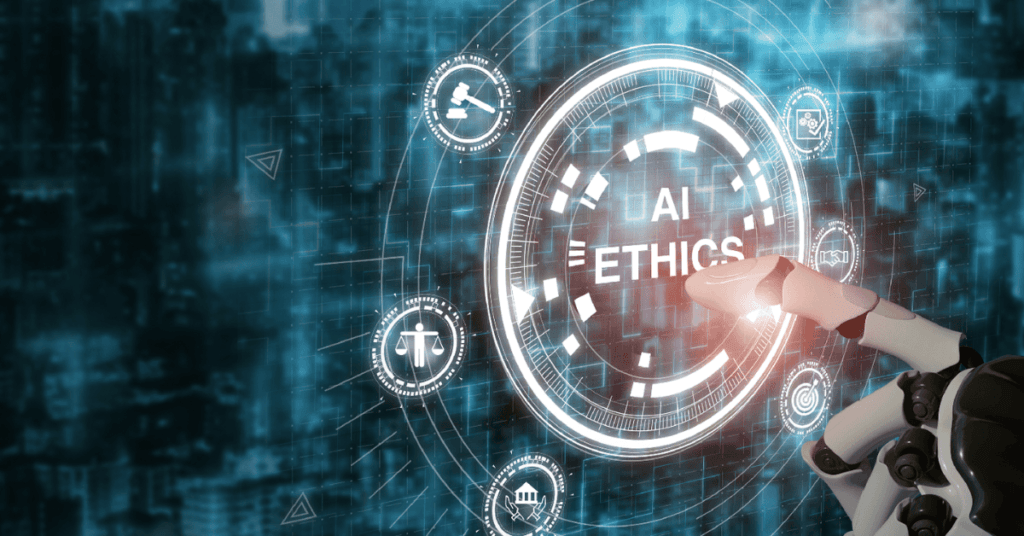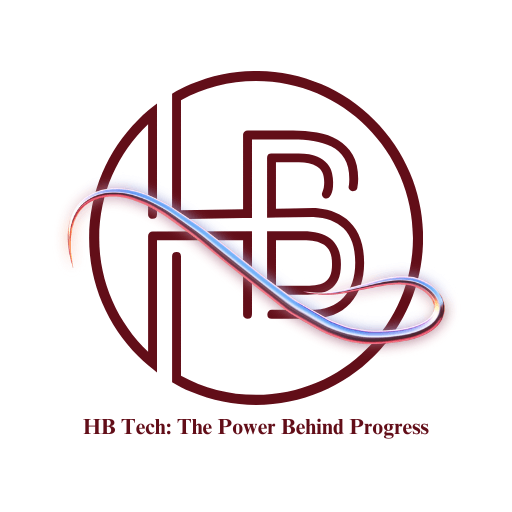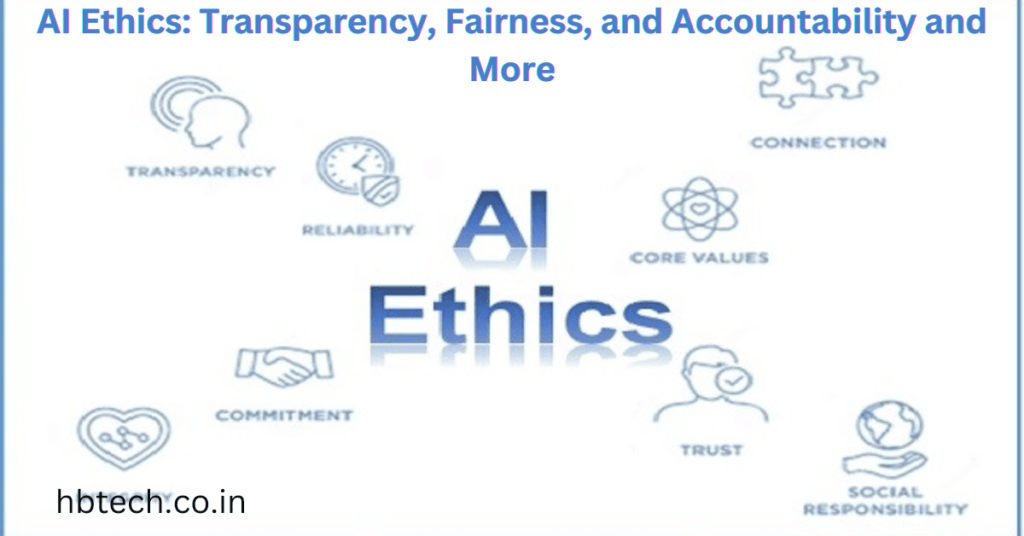AI in Ethics

Artificial Intelligence (AI) is advancing rapidly, bringing both exciting opportunities and ethical challenges. As AI continues to evolve and integrate into our daily lives, it’ s crucial that we think carefully about the ethical issues that come with it. In 2024, several important themes are shaping the conversation around AI ethics. These topics focus on how AI should be used responsibly, ensuring it benefits society while avoiding harm.
AI Transparency
One of the biggest concerns with AI is understanding how these systems work. AI transparency is about making the processes behind AI systems clear and accessible, so that users know how decisions are made. This is especially important when AI is involved in areas like hiring or healthcare. If people understand how AI systems work , they are more likely to trust them and feel confident using them.
Bias and Fairness
AI systems learn from the data they are trained on. However, if the data is biased, the AI will be too. This is why bias and fairness are major topics in AI ethics. In 2024, it’ s crucial that AI systems are designed to be fair and free of discrimination, especially in sensitive areas like hiring, healthcare, and law enforcement. Ensuring AI doesn’t favor one group over another is a key challenge that needs to be addressed to make sure AI works for everyone.
AI Accountability
When AI makes a mistake or causes harm, who is responsible? AI accountability is all about making sure that someone is held responsible for the actions of an AI system. As AI becomes more involved in everyday decisions, it ’s essential that companies and organizations are clear about their responsibilities and actions. Accountability ensures that AI is used carefully and ethically. and that mistakes or harmful outcomes are addressed properly.
AI Governance
To make sure AI is used ethically, there needs to be clear rules and regulations. AI governance is about creating laws, policies , and frameworks that guide how AI should be developed and used. Different countries are working to establish regulations that ensure AI is safe and doesn’t cause harm. These regulations will help create a balance, ensuring that AI is used for good without infringing on people’s rights or freedoms.
Ethical AI Design
Ethical design is about ensuring that AI systems are built with human well-being in mind. This includes making sure AI respects privacy, is safe to use, and doesn ’t cause harm. Ethical AI design is becoming more important as AI continues to evolve. For example, in healthcare, AI systems must be designed to protect patient data and ensure that they are making decisions that benefit people; not harm them.
AI and Human Rights
AI can impact many aspects of human rights , from privacy to freedom of speech. AI and human rights is an important issue that is getting more attention in 2024. As AI is used for more tasks, such as surveillance or content moderation, it’s important to make sure these systems don’t violate basic human rights. For example, AI shouldn’t be used to invade privacy or discriminate against certain groups, Ensuring that AI respects human rights is a key part of building trust in these technologies.
AI Regulation
As AI technologies grow in influence, governments and organizations are looking at ways to regulate them. AI regulation is focused on ensuring that AI is used safely and ethically and that it follows laws that protect people’s rights. This includes regulating how AI is used in areas like healthcare, law enforcement, and finance. In 2024, there is a strong push for clearer regulations to make sure AI is developed and used in a way that aligns with societal values and does not cause harm.
As AI continues to transform industries and daily life, it’s important to keep ethical considerations at the forefront of these advancements. Topics like AI transparency, bias and fairness, accountability, and AI governance are central to ensuring that AI benefits everyone without causing harm. By focusing on these key ethical principles , we can build AI systems that are both innovative and responsible, paving the way for a future where AI works for the good of society.
Frequently Asked Questions(FAQs)
What is AI Transparency, and why is it important?
AI transparency refers to the ability to understand how AI systems work, make decisions, and are trained. It’s essential because it helps build trust in AI technology. When AI systems are transparent, users can better comprehend their processes, making it easier to identify and address any issues. Transparency is particularly important in areas like healthcare and hiring, where decisions can significantly impact people’s lives.
What is AI Accountability, and why does it matter?
AI accountability refers to who is responsible when an AI system makes an error or causes harm. As AI systems are increasingly used in decision-making, it’s critical that companies and organizations are held accountable for the outcomes of their systems. Clear accountability structures are needed to ensure that any harmful or incorrect decisions made by AI are addressed and that organizations take responsibility for their actions.
What is AI Governance, and how does it impact AI ethics?
AI governance involves creating laws, regulations, and frameworks that ensure AI is developed and used ethically. It helps guide the responsible deployment of AI, making sure that it is safe and aligned with societal values. Effective governance helps prevent misuse and protects privacy, ensuring AI does not negatively impact individuals or communities.
What role does AI Regulation play in AI ethics?
AI regulation is focused on creating rules and laws that govern how AI is used, ensuring it’s deployed responsibly and ethically. Regulations help make sure that AI is used in ways that protect individuals’ rights and align with societal values. This includes regulating AI in areas like healthcare, law enforcement, and public safety to prevent misuse and ensure AI serves the public good.









